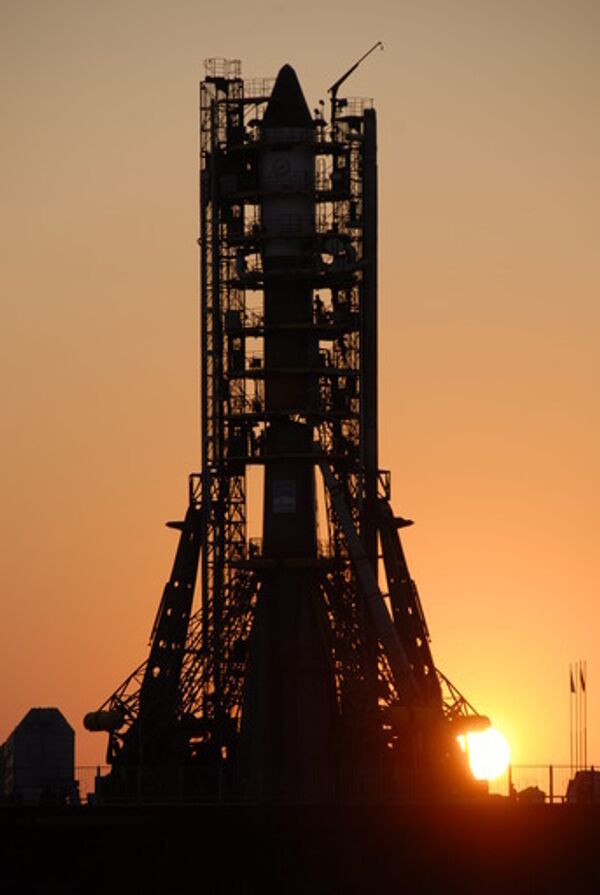MOSCOW, June 10 (RIA Novosti) - South Korea has completed the construction of a space center, which will launch its first rocket launch in late July, the Yonhap news agency said on Wednesday.
The Naro Space Center, about 500 km (311 miles miles) south of Seoul, covers an area of over 5 square km (1.9 square miles). The construction cost totaled $248.6 million, according to the country's Ministry of Education, Science and Technology.
On June 30, the country is scheduled to launch its first rocket, KSLV-1 (Korea Space Launch Vehicle) carrying a research satellite.
"If the launch scheduled for July 30 is successful, South Korea will become a member of the 'space club' whose members have developed their own rockets and satellites and sent this into space from a launch facility on their own soil," Yonhap quoted Min Kyung-ju, the head of the Naro center, as saying.
KSLV-1, which was built in cooperation with Russia, is based on the Angara carrier rocket. The carrier rocket is designed to deliver small satellites into low orbit and can carry a payload of up to 100 kg (220 lbs).
KSLV-1 was developed jointly by the state-run Korea Aerospace Research Institute (KARI) and Russia's Khrunichev State Research and Production Space Center. It weighs 140 metric tons, has a diameter of 3 meters (10 feet) and the height of 33 meters (108 feet).
"The Naro center and the KSLV-1 are critical milestones in the country's space program," the agency quoted Yoo Guk-hee, head of the ministry's space development division, as saying.
A second, more powerful rocket named KSLV-2 could be created and launched by 2018 without foreign assistance. It is expected to be a 50-meter (164-foot) three-stage rocket, capable of carrying up to one metric ton of payload.
"Seoul has decided to go solo on the next rocket based on knowhow acquired in the building of the KSLV-1 with Russia," deputy education minister Lee Sang-mok was quoted as saying.




